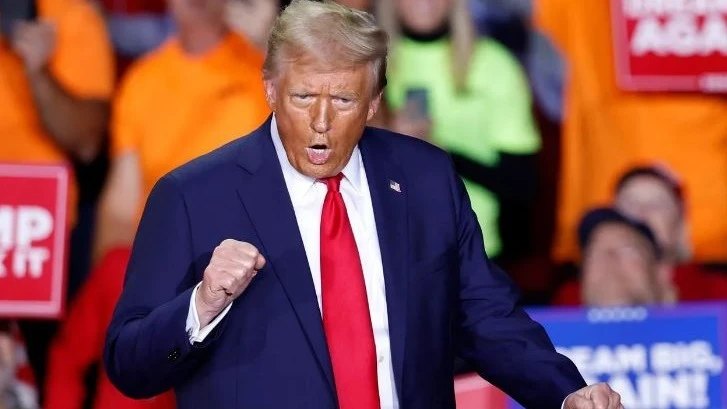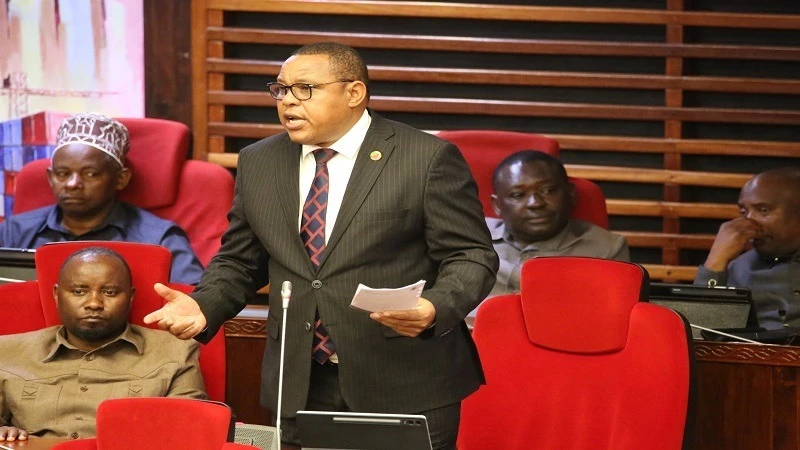Citi economist on Trump government’s implications for Sub-Saharan Africa

Donald Trump’s first presidency has often been described as transactional, prioritizing “America First” policies that reshaped U.S. foreign relations.
Trump’s trade policies, particularly his tariffs on Chinese goods, created ripple effects in global trade flows and commodity prices, challenging many Sub-Saharan African (SSA) economies reliant on exports to major markets like China.
“Sub-Saharan economies were caught in the crossfire of the U.S.-China trade war. The devaluation of currencies and the tightening of global financial markets under Trump’s policies placed further strain on already vulnerable economies.” David Cowan, Citi’s Chief Economist for Africa, highlights.
Cowan also points to the limited focus on African debt sustainability during Trump’s first term. Many SSA countries, heavily dependent on external borrowing and Eurobonds, struggled with fiscal challenges exacerbated by a lack of concerted U.S. support for debt restructuring.
According to Cowan, Trump’s upcoming visit to Africa during the 2025 G20 Summit in South Africa marks a turning point in U.S.-Africa relations. As the first U.S. president to attend a G20 Summit on African soil, the visit validates the continent’s rising global relevance.
“Trump’s America First policy deprioritized Africa in traditional diplomatic terms, but his administration’s actions on trade and tariffs indirectly influenced SSA economies, particularly through global supply chains and shifting investor sentiment.” He adds that the visit offers African leaders an opportunity to reengage with the U.S. and reposition the continent as a strategic partner in global trade and investment.
China’s extensive economic footprint in SSA through infrastructure investments and debt-financing agreements remains a focal point in U.S.-Africa relations. Cowan believes Trump’s Africa policy may seek to counterbalance China’s influence by promoting U.S.-backed private sector investments in critical sectors like technology and renewable energy.
“The Trump administration’s Africa strategy could center on positioning the U.S. as a viable alternative to Chinese dominance,” says Cowan. “This is particularly relevant in areas such as infrastructure and green energy, where Africa needs long-term partnerships to drive sustainable growth.”
Under Trump’s leadership, the pivot toward bilateral trade deals is likely to continue, potentially reshaping frameworks like AGOA. Cowan notes, “Trump’s emphasis on balanced trade could mean stricter conditions for African exports, but it also presents opportunities for nations with robust industrial bases to negotiate favorable terms.”
Cowan cautions, however, that Trump’s transactional approach may limit the scope of long-term partnerships, particularly in the context of regional initiatives like the African Continental Free Trade Area (AfCFTA).
The US Dollar strengthened to a near 1- year high on Wednesday with markets pricing in Donald J Trump’s victory in the 2024 elections.
The Euro slid to a 4-month low, the Yen fell to a 3-month low with the Mexican peso plummeting to 2022 levels. While Trump has advocated for a weaker dollar, his policies are likely to drive up inflation and economic growth, prompting the Fed to keep rates higher, in turn boosting the dollar.
With higher interest rates, borrowing costs and treasury yields are expected to remain elevated despite the worrying growing government debt in the US and the bulging deficits.
Yields on the US treasuries soared with the benchmark 10-year paper rising 18 basis points to 4.47% – highest since July. The 2- year paper saw yields rise about 5 basis points to 4.31%. The 30-year paper saw the highest single day increase of 23 basis points since 2020 mirroring a change in market dynamics.
Trump claimed victory after securing a decisive lead with 266 electoral votes while also winning the popular vote, capturing the swing states including Pennsylvania, Wisconsin, Nevada, North Carolina, Arizona and Georgia.
A Trump’s presidency is expected to have softer regulation on cryptocurrency, steering the crypto market higher. On Wednesday, Bitcoin rallied to an all time high of US$74,300.
The Federal Reserve is expected to give an interest rate review on Thursday with the US inflation rate still hovering above the Fed’s threshold.
Africa’s share of global GDP is in the low single digits, but two factors in particular could prove transformative for its economy: positive population growth amid a shrinking world population, and the benefit of “leapfrogging”, where its nations can adopt new technologies faster as latecomers by skipping traditional development phases. Meanwhile, the post-COVID world has created significant challenges. Higher inflation led to a string of defaults and collapsing currencies, and some multinational corporations have pulled their operations.
Top Headlines
© 2025 IPPMEDIA.COM. ALL RIGHTS RESERVED

























